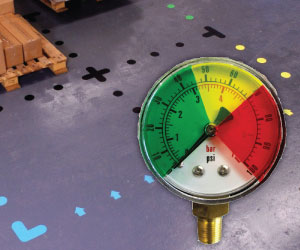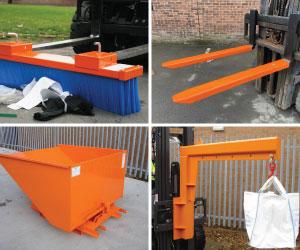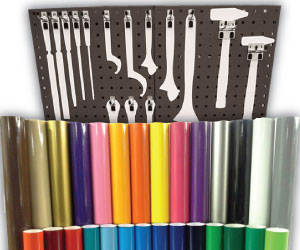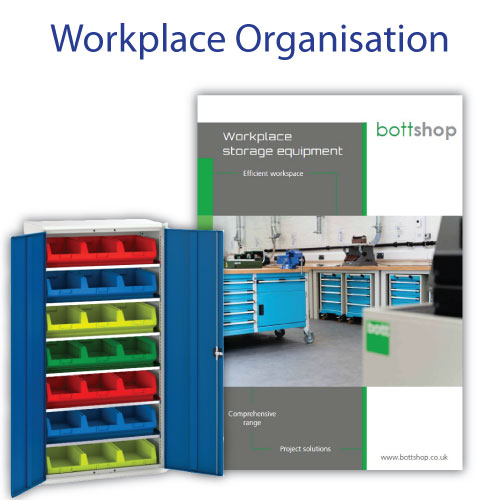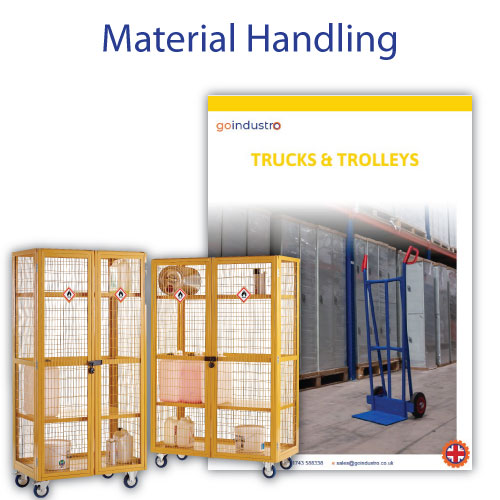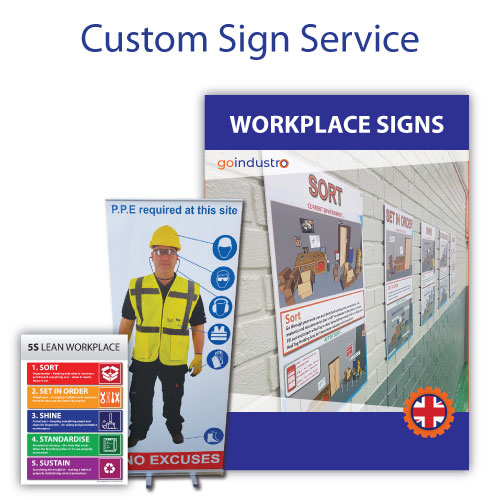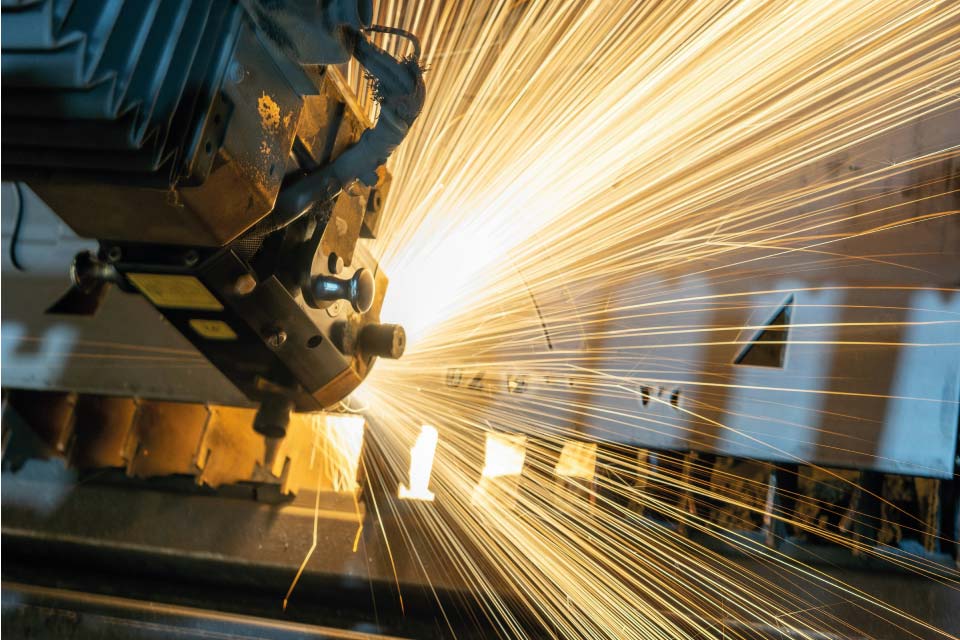Made in the UK
Despite recent disruptions, the industry has shown remarkable resilience, embracing digital transformation and sustainability. Explore how British manufacturers are innovating and preparing for a globally competitive future.
UK manufacturers have demonstrated amazing adaptability during a period of unprecedented disruption, according to a new report published by Protolabs and the Institute of Mechanical Engineers (IMechE). The report, “How Five Years Shaped the Future of UK Manufacturing,” is based on annual surveys of more than 700 UK manufacturing executives and IMechE members over five years, covering the years before, during, and after the global pandemic and Brexit.
The report shows that, despite these challenges, confidence has greatly increased among businesses, particularly regarding their readiness to adopt Industry 4.0 practices and the digital processes needed to remain globally competitive. Nearly two-thirds (65%) of respondents now say they are ‘very prepared’ or ‘prepared’ for the Industry 4.0 era, a three-fold increase compared to 2019. Additionally, UK manufacturers now have greater belief in their ability to resolve the digital skills gap by training their own people.
Where previously, the labour force lacked the right skills and insufficient new talent was entering the industry, businesses are now focusing on and investing in STEM talent. This shift is highlighted by the rise of “greater focus and investment in STEM talent” as a top priority in 2023.
Bjoern Klaas, Managing Director and Vice President EMEA of Protolabs, noted that the period has stress-tested UK manufacturing, revealing the sector’s resilience and adaptability. Matthew Rooney, head of policy at IMechE, emphasized the sector’s importance to the economy and called for more government recognition and investment, especially with a general election approaching. Despite the challenges, there are signs of a renaissance, with the UK climbing the global manufacturing league table from ninth to eighth place.
Speaking to Silicon UK, Maddie Walker, Managing Director of Industry X, Accenture, explained how technology is transforming manufacturing in the UK: “The impact of technology on the manufacturing sector over the last decade has been remarkable. Everywhere you look, technology has completely transformed manufacturing supply chains and workflows.”
Walker continued: “Smart factories, where sensors and devices are interconnected via the Industrial IoT to allow for smart manufacturing processes and predictive maintenance, are now commonplace across sectors. AI-based technologies, such as digital twins, have revolutionised workflows by bringing manufacturers, engineers, and designers closer together than ever before, and have led to huge efficiency gains. In the meantime, virtual-reality technologies have revolutionised training and safety processes. There has also been an incredible improvement and far wider deployment of automation across supply chains, enabled in part by huge advancements in AI and robotics, which has created greater efficiencies as well as better resilience to shocks.
“But that is not to say the industry does not still face challenges. The UK is only just emerging from a long downturn in production. Investing in technology is crucial to help manufacturers weather turbulent shifts in consumer demand, skills shortages and raw materials prices by creating as much efficiency as possible.
Nonetheless, it’s also imperative for UK manufacturers to have a talent strategy, as well as a technology strategy. The UK’s skills shortage in manufacturing is particularly acute – with nearly 20% of current engineers expected to retire by 2026.
“The UK must also start drawing on its strengths to truly revive the sector over the long term. We must capitalise on our expertise, such as in the life sciences sector, as well on new areas for growth, which include batteries, aerospace, and satellites – all of which rely on high-tech manufacturing processes. There is already recognition that the UK has great potential in these areas, and we harbour some of the world leaders in R&D and academia, so this must be harnessed if we are to take a leading position on the next generation of manufacturing. Prioritising sustainable practices will also help to strengthen and build resiliency in the sector. By recycling and reusing, UK manufacturers can reduce their dependency on global supply chain and keep more production onshore.
Walker concluded: “If successful, the UK manufacturing sector can become one of the economic pillars we rely on in the coming years. Several challenges, from global permacrises, to shipping blockages and delays, to fast-changing customer expectations, continue to challenge manufacturers. The UK manufacturing industry has responded to these mounting pressures by restructuring around new priorities, streamlining costs, and reducing waste – efforts that must be continued. Many have made headway with green technologies and digitalisation, and by rethinking how their products are made and working with different original equipment, they can keep reducing risk and optimising costs. This is a path we must continue to follow to ensure the sector is well-positioned to support future and ongoing sustainable UK economic growth.”
UK manufacturing is undergoing a period of significant transformation. The sector has traditionally been a cornerstone of the UK economy, contributing approximately 10% to GDP and providing millions of jobs. However, recent years have tested its resilience like never before.
Brexit introduced a level of uncertainty that affected supply chains, trade relations, and investment decisions. Companies had to adapt quickly to new regulatory environments and potential tariffs, which often involved re-evaluating supply chains and finding alternative markets or suppliers. The pandemic further exacerbated these challenges, causing disruptions in production, workforce availability, and demand fluctuations. However, these disruptions also acted as a catalyst for change, pushing manufacturers to innovate and adapt.
Manufacturing prowess
According to the latest report from Make UK and PWC, challenges to the UK’s manufacturing sector remain, but there is resilience and a positive outlook for the future: “The past few years have been challenging for manufacturers. However, they have shown great resilience in overcoming a range of obstacles. There is now cautious optimism – conditions are improving, thanks to a more supportive and stable policy environment. Almost a third believe the UK is increasing its competitiveness against Germany and France, while more than a quarter say the UK is moving ahead of Spain and Italy. However, manufacturers remain wary of the threat to their competitiveness posed by the US, India and China. In the US, the Inflation Reduction Act has increased its appeal as a place to do business – it has earmarked $369bn for clean energy incentives and reduced inflation by lowering energy costs.”
The report concludes: “Looking ahead, the balance between people and skills, and digitalisation and automation, will be key to managing costs as well as strategic direction. With opportunities outweighing risks, growth plans in place, and investment intentions well and truly on the cards, it looks like 2024 may be the start of a real manufacturing renaissance.”
DefProc Engineering, Managing Director, Jen Fenner, who is on the Liverpool City Region Combined Authority Advanced Manufacturing Board alongside representatives from Jaguar Land Rover, Make UK and Ford Motor Company says:
“’Made in the UK’ relies on people seeing manufacturing in the UK as an attractive proposition. To grow the economy, this means more profitable manufacturing businesses. Using technology in newer businesses could lead to more profit generation, meaning the sector is more attractive for investment, which would lead to more jobs and grow the economy. However, making things in the UK is very expensive, and until we figure out how to use technology to significantly lower costs, we’re not going to have that competitive edge over places like China and India.”
Making the future
Looking ahead, the future of UK manufacturing appears promising, driven by technological advancements, a focus on sustainability, and an adaptable workforce. The sector is poised to leverage Industry 4.0 technologies to enhance productivity and innovation. The emphasis on training and developing digital skills will ensure a competent workforce capable of meeting future challenges.
Patrick Fenner, Co-founder and head of engineering, DefProc Engineering, advises: “Investment in innovation is the main step. The government can’t create an industry, but it can encourage investment, which drives productivity and innovation. This doesn’t have to be in the form of public money, but rather pushing standards and regulations or stating intentions for the future so private investment will move in a certain direction. There also needs to be support in place for an educational route so people in the local area can take up jobs in that sector. We need to train and retain people in the UK manufacturing sector, so we see the societal benefit.”
Also, Georgina O’Toole, Chief Analyst at TechMarketView told Silicon UK: “We have noticed a few key trends in this sector. The first is related to the recovery of the manufacturing sector as a whole, with those closely watching the industry, like S&P Global, pointing to a new positive phase; S&P data indicates, for example, that output expanded at the quickest pace for over two years in May 2024 on the back of improved intakes of work. Meanwhile, at TechMarketView we have been monitoring external spend on software and IT services.
“And in 2023, our data suggests strong growth in demand from the sector, with an increase of around 10% in external spend from manufacturing organisations. Manufacturing has been slow to invest in tech. A recovery in the sector will help to fund investment. But there is another driver; the sector has been slow to invest in digital, but with the GenAI revolution (for want of a better term) plus the productivity improvements promised by the implementation of new technologies such as those related to the Industrial Internet of Things, organisations are seeing a greater need to invest in IT and digital to remain globally competitive.”
Emerging technologies such as AI, IoT, and advanced robotics will play a pivotal role in shaping the future of manufacturing. These technologies enable greater automation, predictive maintenance, and real-time data analytics, leading to smarter and more efficient production processes. The integration of these technologies will not only improve operational efficiency but also open new avenues for product innovation and customisation.
The UK manufacturing industry stands at a crossroads, with significant challenges but also unprecedented opportunities. The sector’s adaptability, as demonstrated during recent disruptions, provides a strong foundation for future growth. By embracing digital transformation, investing in skills, and prioritizing sustainability, UK manufacturers can secure a prosperous future and continue to be a vital part of the global economy.






